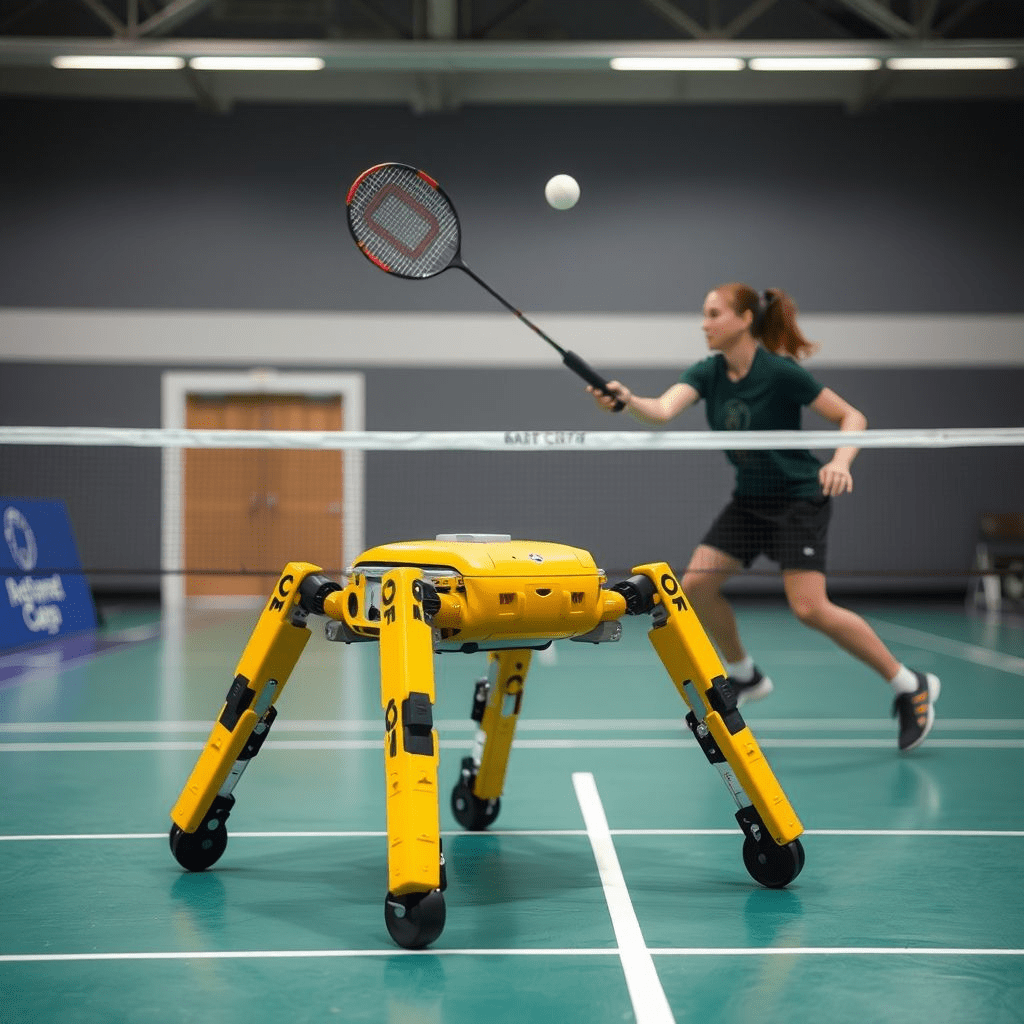Introduction
A Swiss-led research team unveiled an AI badminton robot, marking a first in human-robot training collaboration for competitive badminton.
Development Background
The robot—nicknamed “Badger”—uses legged mobility and AI-predicted shot delivery to train athletes. The project, launched at ETH Zurich, leveraged motion capture and predictive modeling.
Technical Overview
Equipped with four legs and a paddle arm, the robot uses adaptive AI to learn player style, adjust shot power and placement, and provide dynamic practice scenarios.
Field Trials
Initial trials showed the robot could sustain 80% rally pace of advanced collegiate players. It analyzed players’ weaknesses and offered targeted calibrations.
Expert Opinion
Lead researcher Dr. Stefan Meier said, “The AI badminton robot can adapt in real time—matching or challenging trainees with varied shot styles.”
Athlete Feedback
University athletes appreciated the robot’s unpredictable delivery and steady performance. One player noted the system learned and countered her smashes within minutes.
Significance
This innovation signals robotics moving from industrial to sports and training domains. Predictive AI in physical domains opens new pathways in coaching and performance analysis.
Future Outlook
Researchers aim to miniaturize units for personal training and collaborate with institutes in Japan, Korea, and Singapore to assess the AI badminton robot’s global impact.
Conclusion
The AI badminton robot ushers in advanced training tools blending robotics and sports science. Coaches and sports tech firms should watch its development as physical-AI integration accelerates.







